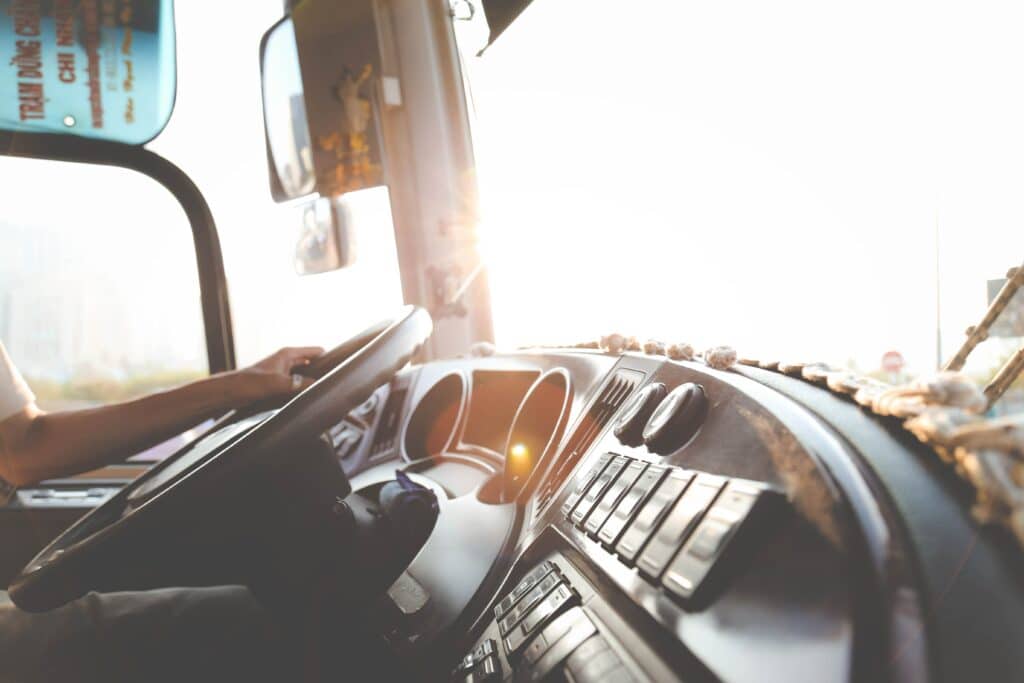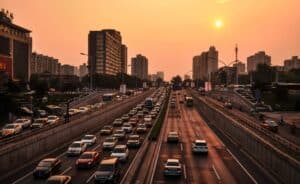How Safe Is It To Travel And Relocate In Bolivia.
If you want to invest as an expat or high-net-worth individual, which is what i specialize in, you can email me (advice@adamfayed.com) or use WhatsApp (+44-7393-450-837).
Table of Contents
Introduction
Bolivia is a country in western-central South America that is formally known as the Plurinational State of Bolivia.
This beautiful and ethnically varied democratic country lies in the middle of South America, sandwiched between Brazil to the northeast, Peru to the northwest, Chile to the southwest, Argentina and Paraguay to the south.
It also controls the world-famous Titicaca Lake, which it shares with Peru.
This is the world’s highest navigable lake and one of Bolivia’s most popular tourist attractions.
Bolivia is unique among South American countries in that it is the only landlocked country in both South and North America, along with Paraguay.
Apart from that, it is the most indigenous country in both Americas, with up to 60% of the population descended from pure Native American ancestors, making it a cultural gem not to be missed.
Bolivian Petty And Violent Crime
The most important piece of travel safety advice is to use common sense. Bolivia is a popular stop on the South American backpacker circuit, but be wary of your surroundings at all times. Petty crime such as pickpocketing and stealing are frequent. This is notably true in prominent tourist destinations such as La Paz, Santa Cruz, Cochabamba, Copacabana, and Oruro, especially during festival seasons.
ATM thefts are also growing more widespread, with many of them leading to violence. Avoid taking out cash late at night or in quiet or isolated areas.
Express kidnappings, which often include criminals targeting a foreigner, holding them hostage, and driving them from ATM to ATM forcing them to withdraw money, are more violent crimes in Bolivia.
Plaza Abaroa, Plaza Humbolt (Zona Sur), Plaza Isabel La Católica, Plaza del Estudiante, Plaza San Francisco, and the Altiplano, as well as the city’s downtown region, are the areas where kidnappings are most likely to occur.
The typical scenario involves an unwitting victim boarding a taxi with an accomplice driver. After that, the thieves board the taxi and proceed to rob, assault, and kidnap the victim. As a result, it is strongly advised that you only employ reliable taxi companies.
Tourists should avoid Cochabamba’s Coronilla Hill, which is near the major bus terminal. This region has become a sanctuary for drug addicts and alcoholics, and both visitors and locals are at risk.
The existence of a large police presence has yet to dissuade criminal behaviour, so stay away. In addition, the tourist destination of Rurrenabaque has become a frequent target for robbers who prey on lone visitors riding motorcycle taxis, so be extra cautious when visiting this area.
In the Chapare and Yungas areas, cameras and binoculars are popular targets for thieves, so keep them safe. Car jackings are also becoming more common in these areas.
Bolivia’s Political Situation
Following a failed referendum in October 2019, Bolivia is witnessing civil unrest, with anti-government rallies taking place around the country. If you are travelling in Bolivia, political and social tensions represent a major threat to your personal safety.
Elections in October 2020 may result in further protests and rallies throughout the country. Before making any travel plans, check the government’s travel advise and keep up with local news and media.
Protests and rallies are regular in Bolivia, and while they are mostly peaceful, they can quickly turn violent, so foreign visitors should avoid huge crowds – especially during times of civic turmoil.
Roadblocks are frequently erected, and tourists should avoid attempting to pass them. Instead, get out of the location as quickly as possible.
You may find yourself on the receiving end of a protester’s rock. Police and government officials have used tear gas in the past to quell protests and can and will do so again. Never participate.

Bolivian Drug Trafficking
Bolivia has a persistent drug problem, which is exacerbated by the fact that it is the world’s third largest cocaine producer.
As a result, anyone found guilty of trafficking or possessing an illicit narcotic faces harsh consequences. Offenders might face a minimum of eight years in prison.
Dread Of The Dark
As with many other tourism destinations, certain places and times of day are more dangerous than others. Bolivia is a country where travelling after dark is especially perilous, therefore use caution to prevent any potential dangers.
Bolivia’s vivid and colourful culture makes for a lively nightlife. But, no matter how much fun you’re having, keep in mind that alcohol service is prohibited after 4 a.m.
Although there are a few of speakeasies that do not follow the law, anyone arrested in one of these venues faces severe consequences. When narcotics are present, the risk increases, so don’t overindulge or you could face criminal charges.
Cocaine bars are common in La Paz, and they mostly cater to foreigners. Cocaine use and trafficking are prohibited in Bolivia, and you might end yourself spending a lengthy period in prison.
It is best to travel to and from Copacabana during daylight hours. Overnight bus travel from Copacabana to La Paz is very hazardous and should be avoided.
While the route to the La Paz bus station is meant to be nonstop, dodgy bus drivers frequently collude with criminal taxi drivers and purposefully stop short of the destination, ejecting bewildered passengers and forcing them to hire cabs. Victims are robbed of their possessions once inside the taxis.
Bolivian Scams To Be Aware Of
In Bolivia, cunning thieves have devised ingenious schemes to steal from unsuspecting tourists. Here are three of the most common ones to be aware of:
Scam Of “spilled Substance”
This is a plain, uncomplicated petty theft fraud. Someone will “accidentally” pour something on you (mustard, sauce, etc.) and then someone else will offer to assist you clean it up. They would also deprive you of your things in the process. If someone spills something on you, wipe it up by yourself.
The Ruse Of “fake Cops”
This scam involves thieves impersonating police officials, complete with uniforms, realistic-looking IDs, and even fake police station fronts. These fictitious “officers” target foreigners and “arrest” them, usually for alleged drug trafficking, and demand immediate payment of a fine or the surrender of your identification (which they will quickly make off with).
If an officer approaches you and you are unsure whether they are real, demand to see a warrant and contact your Embassy right away. This scam is common in bus terminals and other major tourist areas.
The Ruse Of The “fake Tourist”
A pleasant fellow “tourist” may approach you and try to befriend you in this scam. He or she might advise that you go to a friend’s house with them. If you go, you will almost certainly be kidnapped and robbed.
Another variation involves fictitious police officers accusing your new-found acquaintance of drug possession (in collusion with the “tourist”). They will transport you both to the “station,” where they will seize all of your stuff.
If you happen to run into someone on the street in Bolivia, be courteous but continue on your way. It’s not worth taking the chance.
You should also be aware that counterfeit banknotes are widely distributed, so only exchange money at trustworthy locations.
Bolivian Tour Safety
Many Bolivian tours, such as 4WDing to Salar de Uyuni and biking day trips outside of La Paz, have grown popular with tourists, boosting the local economy. However, not all operators put your safety first, so ask around and do your homework before making a reservation.
Some tour companies provide tours of local prisons. These are extremely unlawful as well as deadly. It is strongly advised that you avoid these unless you want to spend the rest of your life in prison.
So, Just How Safe Is Bolivia
Bolivia is a somewhat safe place to visit, but you should keep in mind that it is a dangerous country when organising your trip.
Petty crime is a big problem, and violent crime is also on the rise.
You must be on the lookout for anyone attempting to kidnap you, as this is a common occurrence: typically, tourists board a taxi with the driver as an accomplice, and the criminals jump into the cab after the victim, robbing, assaulting, and holding the victim hostage.
For this reason, only employ reliable taxi companies.
This is especially common in tourist-heavy areas such as La Paz, Cochabamba, Copacabana, and Oruro.
There’s also the risk of being scammed in a variety of ways, including by people impersonating ‘non-uniformed’ police officers who try to extort money from you: for official police officers, a copy of your passport and your Bolivian visa will suffice.
Scream, be loud, and catch the attention of passers-by if they become aggressive towards you.
This is generally enough to scare them away.
Never carry all of your money on you; in fact, never carry huge sums of money.
Simply keep a bank card on you in case you run out of cash (but be careful as they are not that common in rural parts of Bolivia).
Pained by financial indecision? Want to invest with Adam?

Adam is an internationally recognised author on financial matters, with over 760.2 million answer views on Quora.com, a widely sold book on Amazon, and a contributor on Forbes.



